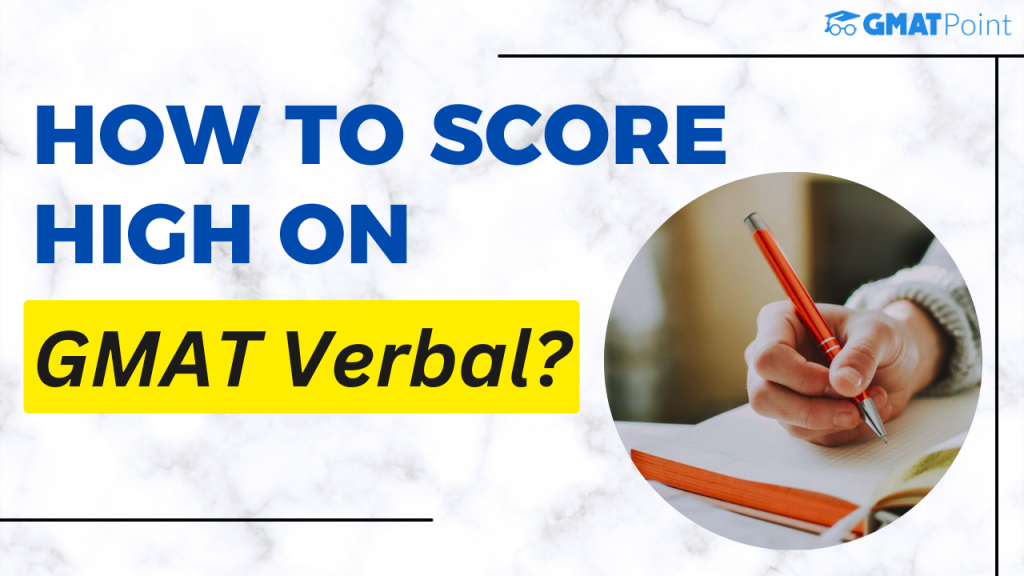If you plan to ace the GMAT Exam, scoring high in the Verbal Reasoning section is very essential. In the Verbal Section, one must usually need at least V35 in order to score an overall score of 700 on the GMAT. If you’re aware of the basics, read regularly, and practise rigorously, you can also achieve a score of V40 or above.
Take Free GMAT 2023 Daily Targets
Subscribe To GMAT Preparation Channel
Attaining this score is not easy, and requires a lot of practice and good habits. In this article, we bring four tips to help you bridge the gap between your current and target verbal scores.
Identify Your Weakness
The verbal section has only three types of questions, so it shouldn’t be too difficult to identify where you are lacking. Identifying which section is pulling your score down is extremely important because, in GMAT, the questions are computer-adaptive, so the level of difficulty of each subsequent question in the verbal section depends on its previous responses. If you are weak in one of the question types, it could make the section slightly less difficult, and consequently might pull down your scores.

The way forward is first to improve upon the type of the topic that is troubling you by practising more of those questions, then once you are good, practice all the types, try improving them together.
Manage Your Time
It is tricky to measure the time while reading (which you will be doing a lot in this section). Hence timing has to come intuitively to you. You should develop a habit of looking at the clock after solving every two to three questions. However, you will automatically figure out when to check the time with practice.

On average, the SC questions should take 1 to 1.5 minutes to solve, but CR questions take 2.5- 3 minutes. RCs lie in the middle with 2 minutes per question on average. The way forward is to not set an average time limit for every question in the verbal section but to have preset time limits for every question type, such as described above. This will ensure that you solve the shorter questions faster and give longer questions adequate time.
Using Options
Comparing options is like – a knife that can be cut both ways. Hence, understanding where you should use options to arrive at the correct answer is essential. It would help if you used the options in SC questions to identify the correct answer. Several strategies, such as sorting the options by their splits or eliminating the ones containing grammatical errors can help you eliminate wrong options efficiently.
However, it becomes trickier in CR and RCs. Here the examiner will try to confuse you by including points you might not have even considered while reading, but sound convincing enough to select the wrong option. Try to identify these options and eliminate them. They become readily apparent when they contain extreme statements or extraneous information. This can be done especially in CR questions when you read the passage and the question, then form your own answer and compare it with the best possible option. Here, the way forward is to use the options in SCs to identify the correct option form your own opinion after reading the given passage in CR questions, and eliminating the options in the RC question. Hence, option elimination becomes extremely important in the Verbal Reasoning section.
Lastly, practice makes perfect
Practising as many questions as possible can help you improve your skills and better understand the types of questions that appear on the exam. Use online resources, books, and practice tests to develop your abilities. One excellent resource available at your fingertips is the GMATPoint Daily Targets. This free tool helps you practice GMAT-level questions daily by providing you with five verbal and five questions of quants for free, along with video solutions. You can also compare your performance with your peers to evaluate your competence.
In conclusion, the GMAT Verbal section tests your language and reasoning abilities, and this section is imperative to boost your overall score.
Consistency and hard work can improve your performance and increase your chances of scoring high. Remember to identify your weakest question type, manage your time wisely, use options carefully in SCs, CRs and RCs and practice as much as possible.
We hope you find these tips helpful. For more help, write to us at support@gmatpoint.com.
All the best!
Also Read:
- What Is GMAT? – Everything to know about the test
- How To Prepare For GMAT In 1 Month?
- What Is Tested In GMAT Verbal? How To Improve Verbal In GMAT?
- Introduction To GMAT Verbal Reasoning (With Solved Examples)
- How To Improve In GMAT Sentence Correction: Tips, Tricks, and Strategies
- 6 Interesting Facts About The GMAT Exam You Should Know
- GMAT preparation for beginners: What to Study and How
- 6 Best Practices for GMAT Preparation: The Ultimate Study Guide
- How To Study For GMAT With Full-time Job?
- Can You Study for GMAT On Your Own? A Step-by-step Approach
- Is GMAT Easy To Crack? What Makes GMAT Challenging
- How to start your GMAT preparation | 5 Tips To Crack GMAT
- Top colleges accepting GMAT scores in India
If you are starting your GMAT preparation from scratch, you should definitely check out the GMATPOINT
